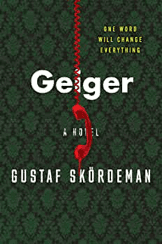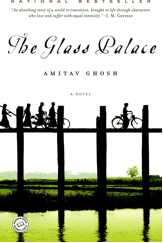Permanent Record
by Edward Snowden
“Arguing that you don’t care about the right to privacy because you have nothing to hide is no different than saying you don’t care about free speech because you have nothing to say.”
Hero, whistleblower, or traitor?
Permanent Record is a compelling account of why and how former computer intelligence consultant Edward Snowden was motivated to become a whistleblower, both leaking secrets of highly classified documents from the National Security Agency (NSA) in 2013, when he was a highly-regarded employee and subcontractor, and disclosing the extent of the U.S. surveillance system. Because of his security clearance, he had access most of his colleagues did not possess. Among the secrets he leaked were classified NSA programs including PRISM, an undercover data-mining operation that collected private data of users from companies such as Apple, Facebook, Google, Verizon, and AOL.
A thoughtful read, it made me consider today’s dominance of surveillance capitalism in our digital age, and what the limitations should be on the government’s access.
An inquisitive person, while still in high school, Snowden hacked into the website of the Los Alamos Nuclear Research Laboratory. He discovered a huge lack of security. Shocked, he contacted the laboratory. He ended up leaving a telephone message which eventually was responded to by someone at the lab. He offered Snowden a job but realizing that Snowden was just a teenager, he said, “Well, kid, you’ve got my contact number. Be sure and get in touch when you turn 18.”
At times witty and shocking, his memoir is enlightening and extremely well-written. Make your own decision regarding Snowden’s actions. What would you do? Become a whistleblower and be harassed and maligned, or remain silent? What are the consequences for both actions?
Note:
I recently read in the media that the U.S. Justice Department (DOJ) thinks Edward Snowden shouldn’t get to keep the profits from his new memoir. Instead, the agency argued in a lawsuit filed Tuesday, that money should go back to the government.
The DOJ suit alleges that Snowden violated nondisclosure agreements he signed while working at the NSA and CIA by releasing his new book without first submitting it to the intelligence agencies for review. In a press release, the agency said it is not looking to halt sales of Snowden’s memoir, but merely wants to recoup all proceeds from the book, which is billed as Snowden’s personal account of the “story of his life, including how he helped to build that system [of mass surveillance] and what motivated him to try to bring it down.”
Geiger
by Gustaf Skördeman
I abhor spoilers so don’t want to divulge too much about this electrifying murder mystery. It’s a splendid debut novel for Skördeman, who happens to be a successful Swedish screenwriter, director, and producer. It is a translation, and I wish I could read the original in Swedish!
The story opens with an elderly couple waving goodbye to their adult children and grandchildren after the end of a delightful family visit. 85-year-old Stellan Broman is a retired, beloved Swedish television personality. His wife, Agneta, answers the telephone as the guests leave. What ensues is a gripping thriller filled with action and suspense. It delves into compelling Russian and German history, politics, and espionage. The primary protagonist is Sara, a family friend and police detective, who investigates the crime. Nothing is as it seems, as in most first-rate mysteries!
The Glass Palace by Amitav Ghosh
by Amitav Ghosh
Oh my gosh, I am always thrilled when I occasionally discover an especially enriching, superbly-written book. The prose is masterful, with well-developed characters –undeniably a gem. The meticulously researched Asian history will interest all of you history buffs.
The Glass Palace is a breathtaking epic novel, which begins in 19th century Burma, spanning over 100 years, originating in India, Malaya (Malaysia), and Burma (Myanmar). It chronicles the ordeals of the last Burmese king, Thebaw, and his Queen Supayalat, who were deposed by the British, and exiled along with the royal family to India, two World Wars, and the struggle for independence from the British. Illuminating and entertaining, it deftly addresses not just the impact of colonialism in the region, cultures, philosophy, and politics from varying perspectives, but also love and loss.
11-year-old Rajkumar, an orphan from India, becomes stranded in Mandalay, Burma, but manages to escape to King Thibaw’s Glass Palace during the chaotic British invasion of the city. Rajkumar meets Dolly, one of the princess’s attendants and is immediately smitten. And so the saga continues, intertwining the stories of three generations of families.
According to the Author’s Notes section in the book, Ghosh took five years to research and write this book. His historical research is impeccable and impressive:
“I read hundreds of books, memoirs, travelogues, gazetteers, articles, and notebooks, published and unpublished; I traveled thousands of miles, visiting and revisiting, so far as possible, all the settings that figure in this novel; I sought out scores of people in India, Malaysia, Myanmar, and Thailand. “
Ghosh was born in Calcutta of Burmese parents and spent his childhood in Bangladesh, Sri Lanka, and northern India. He studied in Delhi, Egypt, and Oxford. He currently lives in New York.



